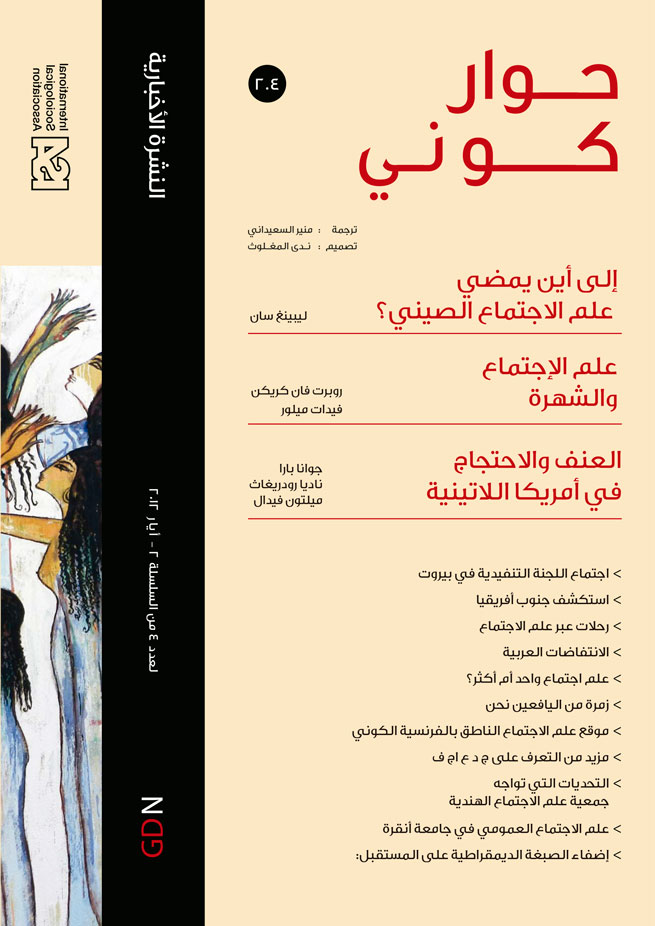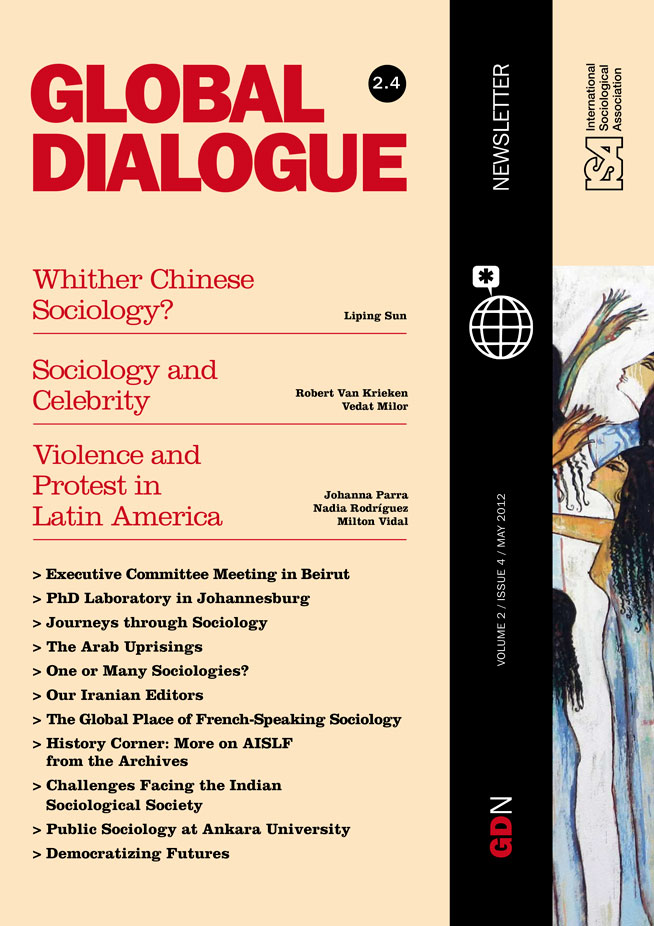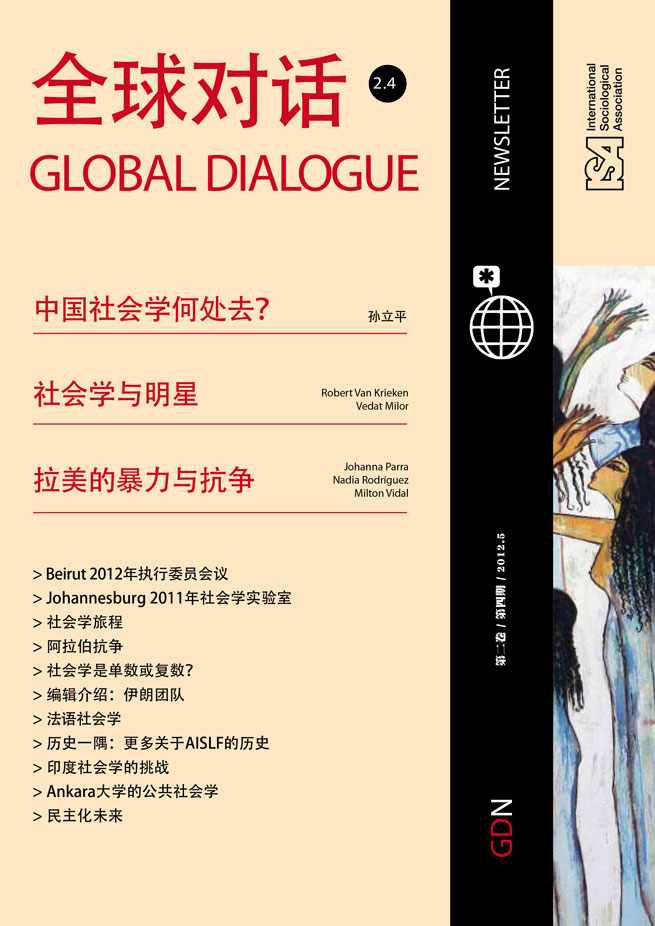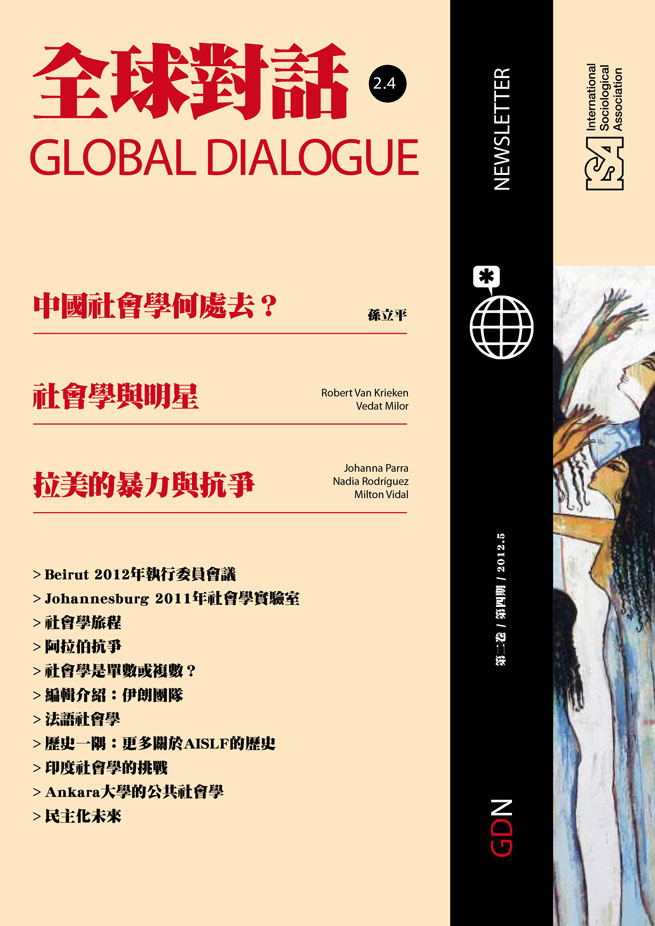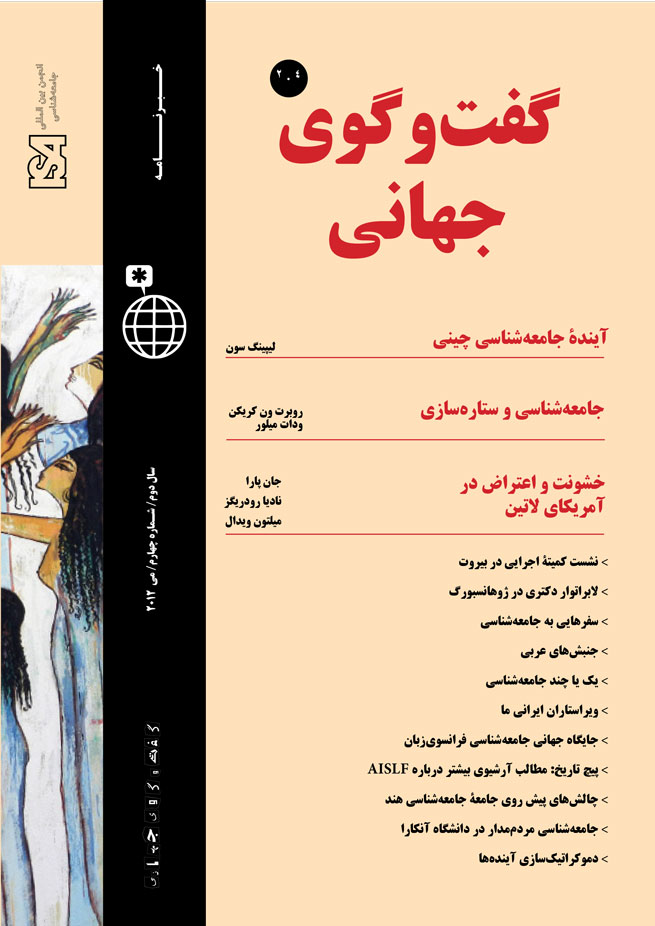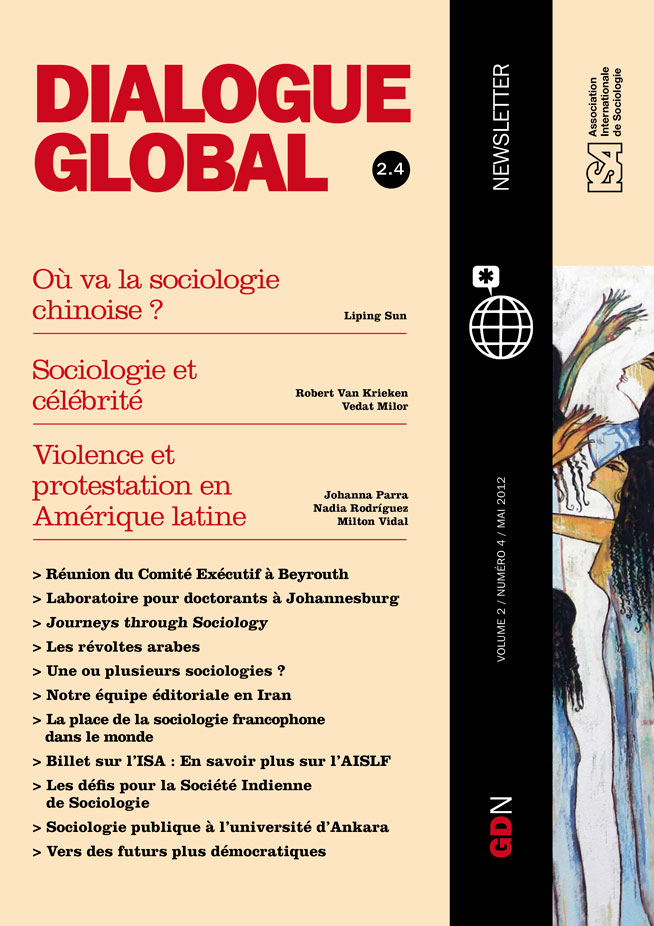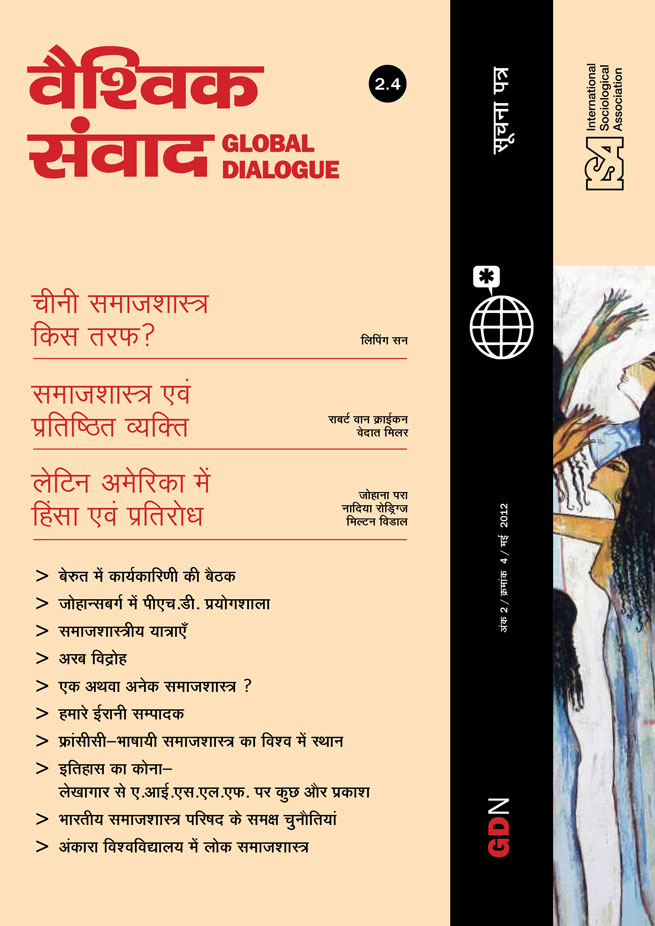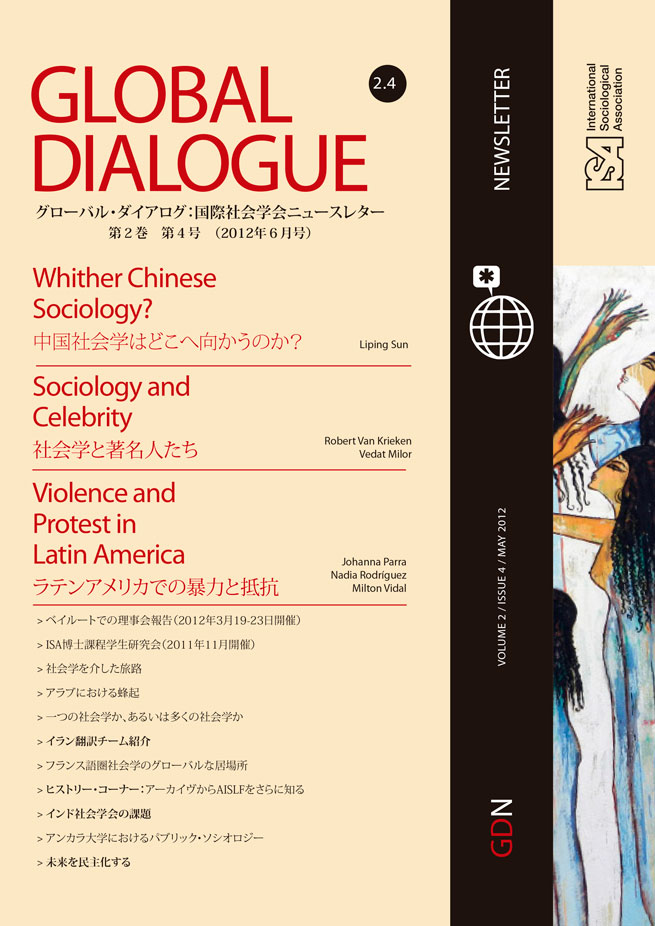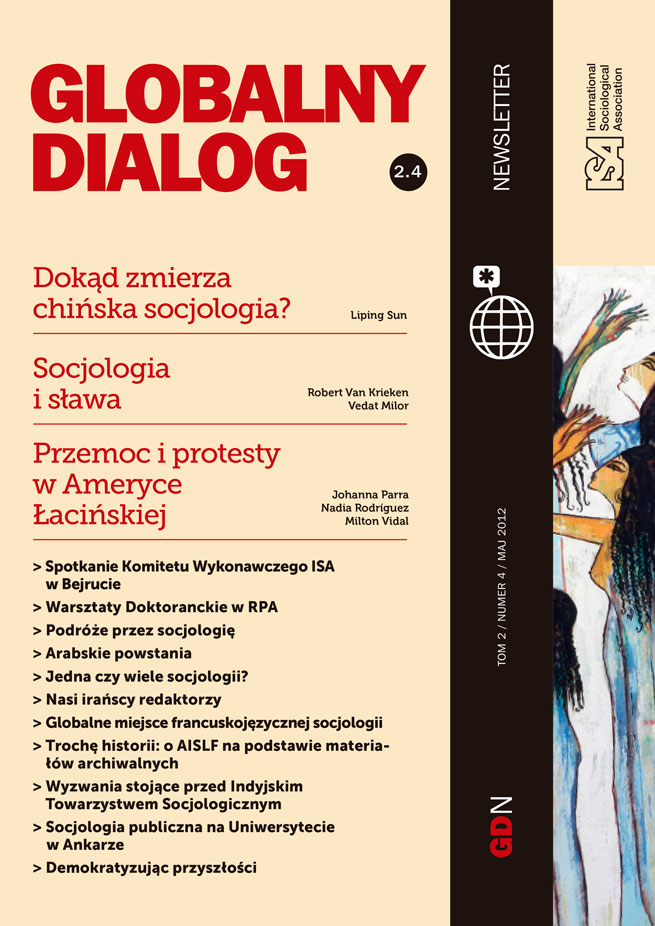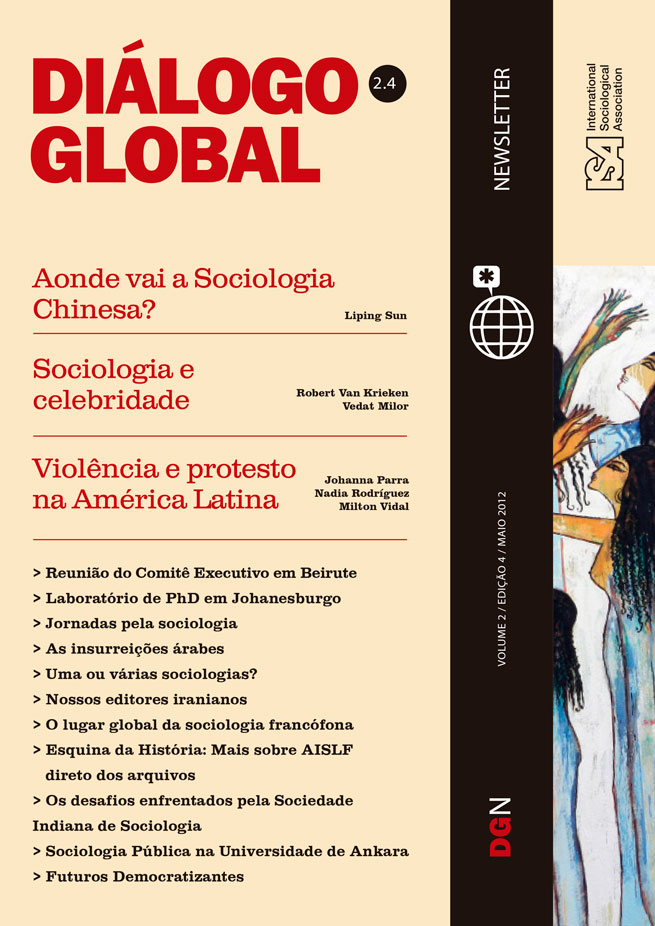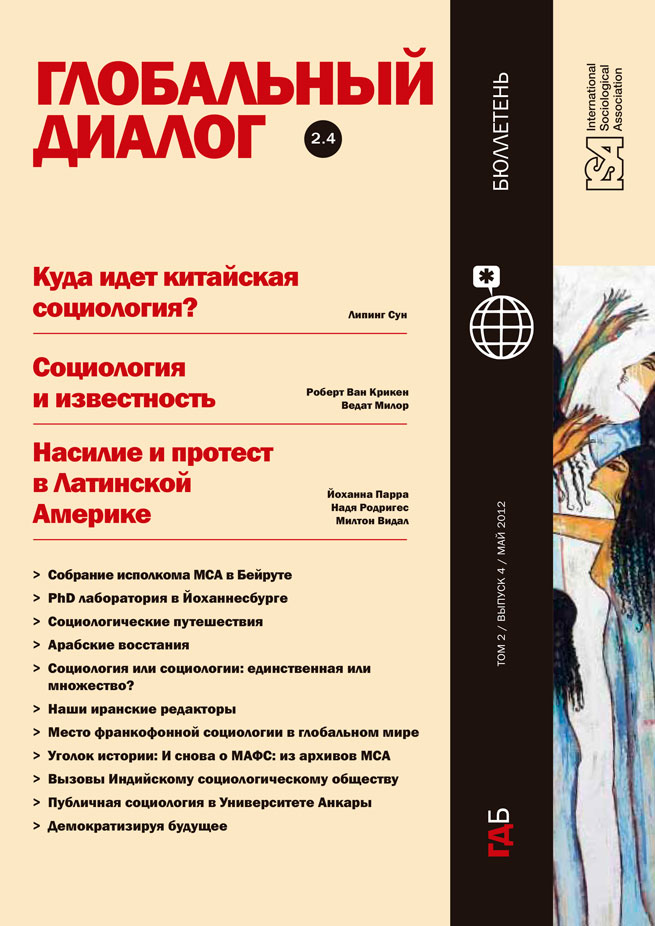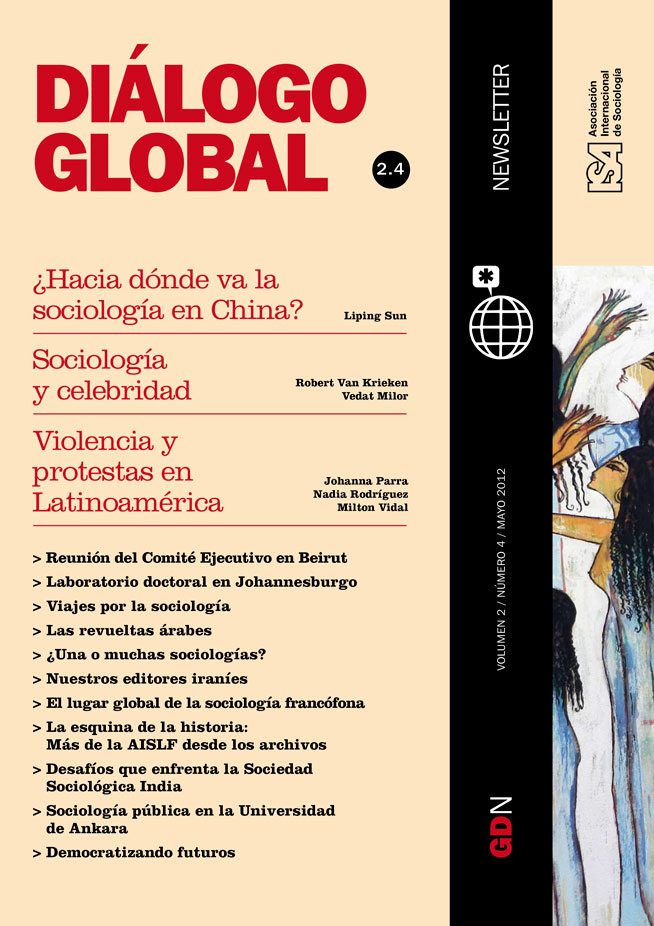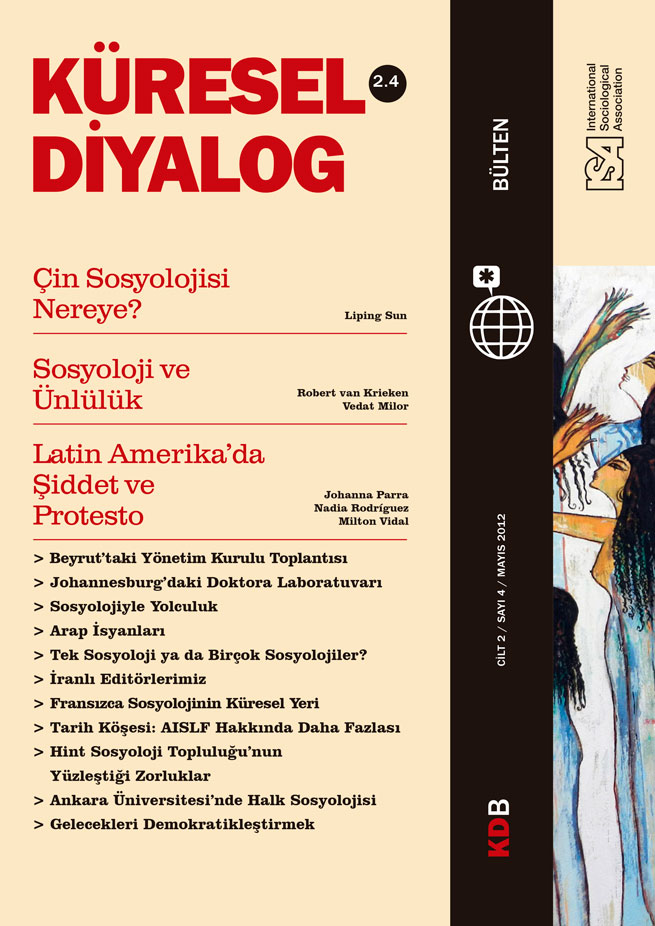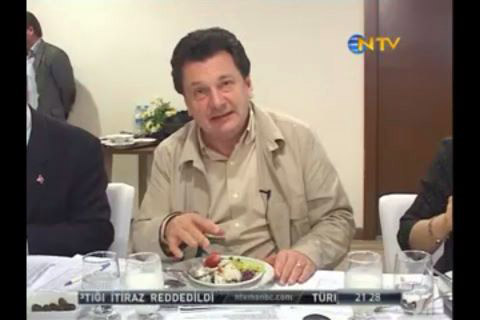Read more about Celebrity

On the Celebrification of the Academy
by Robert van Krieken
July 31, 2013
One may think that the fellow on the television screen in front of me is attending a spiritual meeting, and he is in deep prayer. He is holding his head with his two hands, and his half shut eyes are focused on a single point. Suddenly his cell phone falls from his pocket into the sea. There is some commotion. The camera now shows a slender man missing two of his front teeth wearing a chef’s apron. He is shouting at the waiters to recover the cell phone. Strangely, our fellow has no awareness of the unfortunate incident. Instead he turns to the slender chef and asks: “Why did you use cider vinegar in this dish instead of sherry vinegar?”
I cannot help but laugh. I am watching myself with a mixture of disbelief and amusement. This is not a “reality show,” though. This is the only gastro TV program that I am aware of which is broadcast in prime time and on the weekends by a major TV channel in Turkey, NTV. I am the star of the show; I visit restaurants, taste a multitude of dishes, pass strong judgments on the quality of ingredients and taste combinations, voice criticisms and demand explanations from the chefs. If the restaurant has a wine list I also ask them to pour a glass with each course and I voice my opinion on the quality of the wine and the relative success of the pairing.
I travel with two camera people and one producer from the channel. We visit restaurants mostly in Turkey, but we have been in Rome, Catalonia, Georgia, Syria and Lebanon. At the end of each restaurant visit I give a two to three minute general evaluation and then rank the restaurant by giving stars. Stars range from one to five. The restaurants I rank four and five stars usually hit the jackpot and end up turning away many clients even if they may have been near empty prior to my visit.
Am I a chef? No. I can hardly break an egg. Am I a celebrity? Yes. People recognize me in the streets and ask for a photo all the time. They write about me on many Internet forums. They speculate endlessly on my motives, on my character, and they are very curious about my private life. I keep receiving letters from college students asking “how can we become like you” and from parents of middle-schoolers requesting me to write something for their children as I am their “idol” and they want to become “Vedat Milor” when they grow up!
But who am I? How did the whole thing happen? When I look 30 years back, I see an eager first year graduate student entering the abode of the Berkeley Sociology department following his undergraduate degree in economics from Bosphorus University, Turkey. He was fascinated by Sraffa, neo-Keynesianism, Althusser and French structural Marxists. But in Berkeley he “discovered” the ethnographic method and became interested in “in-depth case studies” to understand the dynamics of social change. His PhD advisor, Michael Burawoy, convinced him that a comparative methodology makes it easier to develop a theoretical framework for understanding and posing questions about the “autonomy” of the state in a dependent capitalist economy such as Turkey. Hence, after some methodological-analytic deliberation, he chose to compare Turkish and French post-WWII economic planning to highlight structural differences in state autonomy and class relations in “core” and “peripheral” countries.
At this point I am tempted to plead “innocent” and say that the discovery of and fascination with French wine were an “unintended consequence” of my choice of France as the ideal-typical model of a dirigiste economy. But, no. It was not. I was already bitten by the bug of great Burgundy wine after paying $10 for a 1982 Henri Jayer Bourgogne at the Kermit Lynch Wine Merchant in Berkeley. I could not afford to buy a radio for my room at the International House, but I was drinking good wine. Drinking good Bourgogne for me was a profound and haunting experience. A good red Bourgogne has a multifaceted aroma, a fickle nature that titillates and challenges the taste buds, and an elegant feminine texture with a surprisingly robust and spicy finish. It is so complex and sensual that it embodies all that I hold dear in bourgeois-democratic and refined Western civilization pitted against the stultifying cultural puritanism of the Reagan years in America and General Kenan Evren’s military rule in Turkey.
“But why are you comparing France with Turkey?” asked the lady who came to campus to interview me for the Fulbright dissertation fellowship. I still remember the shocked expression on her face when she heard my answer: “wine and food!” She must have agreed with me as I was awarded the fellowship. I have also been true to my statement. Malcolm Gladwell in his popular book Outliers: The Story of Success formulates a somehow arbitrary but plausible 10,000-hour rule. Many people are born with innate talents, but to bring them to fruition you must be a workaholic and have spent 10,000 hours in your calling before you excel. Well. What about the 10,000 bottles of wine rule? I sure came close to that between 1985 and 1990 as I joined many clubs and tasting groups while in graduate school.
The years that followed passed with lightning speed. I joined the World Bank as a political economist, but when my dissertation won the “best dissertation prize” of the American Sociological Association in 1990 I was lured back to academic life. I taught at Brown University and Georgia Tech, got a Law Degree from Stanford and was elected to the Order of the Coif. I even spent one academic year at the Institute for Advanced Study and was privileged to be close to one of the greatest minds of the 20th century, Albert Hirschman. I also spent time in Silicon Valley, in start-ups.
Yet, especially after the experience in Silicon Valley, I never felt again moved by academics. My participation in a project at Georgia Tech Public Policy Department on “how to increase efficiency in the use of external consultants by the Georgia Department of Transportation” was the straw that broke the camel’s back. I was not interested in becoming a technocrat. I did not share similar interests with my colleagues. I had to search for alternatives.
A friend from my World Bank years in Washington, DC had become the general editor of the reputable daily newspaper, Milliyet, in Turkey. He was looking for somebody with a good knowledge of wine and food and a reputation for integrity. He asked me if I would write a bi-weekly column in his paper. Since then I have been on a roller coaster.
Is there a theoretical explanation for my popularity? I think there is. The dynamics that brought fame and popularity to me are similar to the dynamics that brought the ruling Justice and Development Party (AKP) to power in 2002. The ruling secular alliance of the military-bureaucratic elite and the monopolistic fragment of the big bourgeoisie had lost its grip on politics and economics. Aided and abetted by rampant corruption in politics and a severe economic crisis, AKP’s version of Islamic populism promised fairness and transparency. The party benefited from splits in the power bloc and found supporters among monopolistic fragments of capital. It also mobilized marginalized segments of the Anatolian bourgeoisie, urban traders, building contractors, educated members of the conservative youth, and the swelling masses of urban poor.
I am astonished to see how popular is my program in Anatolia and among the urban poor. Sure, educated people who can afford eating out are among my followers, but how does one explain the popularity among marginal urban masses and especially the youth? I was certainly aided and abetted by my “outsider” status. I was not part of old boy networks in the food and drink industry, and I shy away from close alliances with big restaurateurs and the food industry.
But I believe there is one more important factor explaining my popularity especially among the youth. The puritanical-repressive element always present in Islamic culture has been highlighted since AKP’s rise to power. When this repressive bias against sensual pleasures is coupled with the now rampant political repression of opponents, young people in particular turn inwards and take refuge in their rich imaginations. Intolerance of collective forms of protest and severe censorship of mass media generate fear, but also stimulate imagination. Young people perceive politics to be “dirty” and economic life to be “filthy.” They are well aware of the sacrifices in their integrity needed to “succeed” in life. A seemingly care-free person about their father’s age, who seems to be having a glorious love affair with food and wine, is a fascinating alter ego. Against the background of a bleak existence and stunted aspirations, a lifelong adventure in pursuit of “taste” is the most satisfying thing life has to offer.
Maybe I am their “Jayer Bourgogne,” enabling them to redouble their psychic energies and let loose their repressed sensualities in a hostile socio-cultural and economic environment. This “twisted idealism” of the marginal youth cross-cutting economic classes is the flip side of the “celebrity culture” and the status of the celebrity as an “idol.” One cannot help but echo Marx: “the death of the celebrity culture should be the emancipation of the celebrities.”
Vedat Milor, Istanbul, Turkey
This issue is not available yet in this language.
Request to be notified when the issue is available in your language.
If you prefer, you can access previous issues available in your language:
